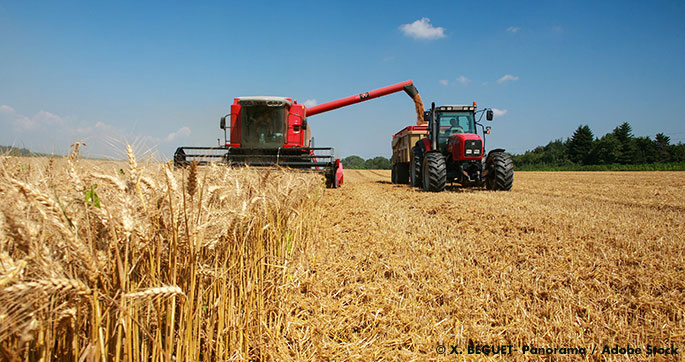What Kind of Food System Do We Have Now?
A linear economy is one that prioritizes production and profit over all else, ignoring costs accrued in waste, pollution and health impacts. According to a new study by the Ellen MacArthur Foundation, the linear food economy is responsible for USD 5.7 trillion in economic, environmental and health costs. The current food economy is feeding us, but costing us so much in the process.
Linear food systems utilize ecologically harmful production practices, leading to degradation of the land and soil. The MacArthur study reported that “the equivalent of six garbage trucks of edible food is lost or wasted every second” using current practices. Health impacts are high, as agricultural and manufacturing prioritizes cheap over healthy and sustainable. (1)
What is a Circular Food Economy?
Circular economy has become a popular idea lately and for good reason. A circular economy attempts to cut down on waste byproducts, environmental harm, and health impacts by incorporating recycling, reuse, and repair into production and use.
A circular food economy would be hugely beneficial in almost every way imaginable. The MacArthur study details three ways in which cities, which serve as hubs for the food economy, can transition from linear to circular practices.
Circular Food Economy Recommendations
1. Local and regenerative food sources
The more demand for regenerative agricultural practices (including organic, permaculture, agroforestry and more) the more supply there will have to be.
2. Cut down on food waste
Rather than throwing away unused or unwanted food, a circular food economy would attempt to use ALL food products in one way or another.
3. Market healthier food products
In a circular food economy, cheap and easy would no longer be the priority in advertising. Rather, ecological and personal health would take the front seat in the ways food is marketed to the public.
A circular economy in all sectors of life is possible, and including our food systems in the transition will go far in promoting health, saving money and repairing ecological damage.





































































































































 Three Ways to Engage Teams and Clients to Maximize Your Recycling Program Engagement
Three Ways to Engage Teams and Clients to Maximize Your Recycling Program Engagement  How to Integrate Accessibility Into Your Sustainability Planning
How to Integrate Accessibility Into Your Sustainability Planning  Why Park Benches Can Promote Workplace Well-Being
Why Park Benches Can Promote Workplace Well-Being 
